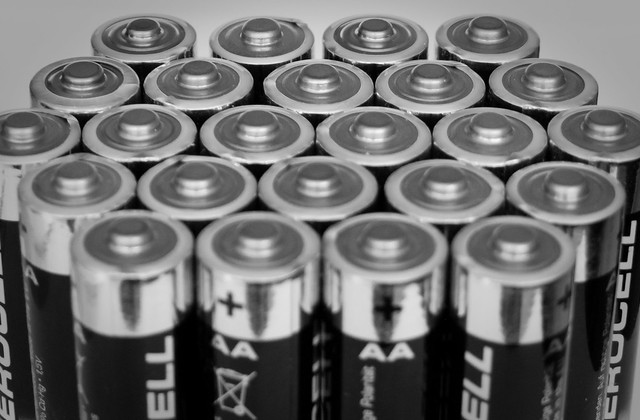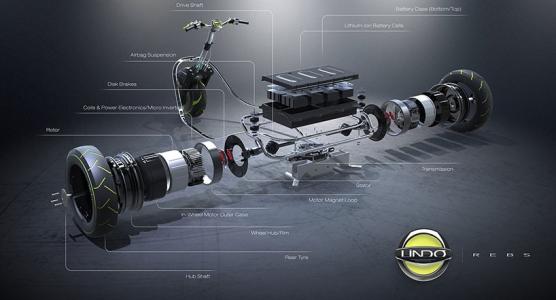Where To Dispose Of Lithium Batteries Near Me
Jul 22, 2019 Pageview:2911
Whenever the battery in our homes dies, we are most times lost on how to get rid of them. Neither do we know the most sustainable option to use in getting rid of them.
With the advent of diverse wireless electronics in the home, it is highly necessary that we know what to do when our batteries turn up dead. However, this can vary based on what each batteries are being used for.
An example is the fact that batteries in the TV remote are treated differently from batteries that are rechargeable like a laptop or digital camera batteries. This is because they can be hazardous and even considered illegal to simply throw away.
The gradual rise of electronics being disposed of improperly is really troubling. We are living in an era of technology where almost everyone makes use or own a cellphone, tablet, or a laptop.
However, with so many updates as well as upgrades being demanded frequently, we do find the need to dispose of our older models at all times.
Nonetheless, the proper disposal of cellphones and all other electronics containing batteries may be volatile, especially for those with Lithium variety. There has been a suggested cause for the inadequate disposal of lithium batteries.
It is due to a typical misconception that whenever an item states that it is recyclable, most times we assume that we can recycle it with just a single stream recycling. Basically, when an item is recyclable, it means that it can be recycled in some way.
For example, the lithium batteries can actually be recycled, but it depends on where you reside. Also, it is vital to note that lithium batteries cannot be disposed of in trash as well.
This is because the back of the truck is most times very wet and it is less likely to actually feed the Sparks from all these batteries and begin a fire. However, they are still thought of as being toxic materials that are tagged household hazardous waste.
Lithium batteries tend to lose diverse health and environmental hazards. Whenever you discard them, they must surely be disposed of at a waste collection point, or maybe battery recycling drop off locations but surely not in the waste bin.
Where Do I Dispose of Used Batteries·
On a general note, the United States EPA; Environmental Protection Agency, does not regulate battery disposal of little quantity. Those of larger quantities are strictly regulated under the global rules of hazardous waste regulations.
For lithium batteries, they are not disposed of currently after being used. Though there are no federal regulations for the disposal of lithium-ion batteries, however, each state or even localities can create their very own guidelines for the disposal of the batteries.
To dispose of your lithium-ion battery, it is advisable to contact the disposal guidelines of the state you reside in just in case they have the particular guidelines every citizen must adhere to.
Meanwhile, the batteries that are being used commercially should be left in a dischargeable state before their final disposal.
Subsequently, a major lithium cell is said to be discharged immediately its voltage gets to two volts or lesser than two volts under a current that is C/100. C is the capacity rate of the battery in ampere-hours.
Once it is swiftly discharged, huge quantities of lithium-ion batteries can be safely shipped to any hazardous waste facility to be burnt with an incinerator. However, there are very few companies that engage in recycling lithium-ion batteries.
Moreover, the incineration of lithium batteries and cells is not permitted to be carried out by its consumers. Incineration must be properly executed at a permitted facility that can take issues of waste.
In the same vein, the laws and regulations that pertain to the disposal and recycling of lithium batteries differ from one country to the other. It also differs from one state and local government to the other state and local government.
As stated earlier, every citizen must check out the regulations and laws guiding their states when they want to dispose of their lithium-ion batteries.
On a general note, Lithium-ion batteries are recyclable and should be recycled to be properly disposed of.
How Can I Dispose Of Lithium Batteries
In the process of disposing of lithium batteries, there are steps you can follow, and they include:
· You can easily identify and gather every lithium-ion battery that you want to dispose of. Lithium batteries are actually rechargeable batteries, and they are mostly used in our cell phones, laptops, digital cameras as well as cordless power tools
· Search for a place that effectively collects and recycles these lithium batteries.
· Immediately you get a retailer maybe online or locally, call the place up where you will be taking the batteries to. Ensure that you confirm that they collect batteries at the location and all you need to know before leaving.
· The next step is to place all the batteries in a plastic bag. There should be just one battery inside each plastic bag. You can carry out this arrangement when you are home or at the place· that you will be dropping them off. In cases where there are no plastic bags, you can cover the batteries with either duct, electrical or masking tape.
· Finally, take them to the collection sites to be recycled. Some retailers accept batteries, and they include Staples, Target, RadioShack, OfficeMax, Sears, etc.
How Can I Recycle lithium batteries·
Basically, the recycling of battery is a recycling activity that practically focuses on decreasing the number of batteries that are regularly disposed of as sturdy municipal waste.
Furthermore, batteries consist of some heavy metals as well as toxic chemicals. So, disposing of them via the exact same process used in disposing· of common trash has raised lots of concerns over the contamination of the soil and pollution of water
Most of the materials in rechargeable batteries are basically metal, plastic, and lead. This makes them recyclable. These batteries can be recycled through the following:
· Take back programs
· Drop off programs, and;
· Mail-in programs
However, so many states prohibit the throwing of batteries in the trash, and this means that recycling batteries is the only available alternative left.·
To Wrap It Up
One of the reasons as to why lots of lithium-ion batteries are not being recycled ultimately comes down to easy economics.
But, the collecting cost, sorting and shipping used lithium batteries to a recycler actually surpasses the scrap value, so, the batteries always tend to be thrown far away.
The sad fact remains that the market actually does not take note of the social price of disposal and it does not also factor in the idea that recycling metals like cobalt have a much more reduced environmental and economic cost than the mining of raw materials.
- Prev Article: How To Rewrap 18650 Batteries
- Next Article: Do You Restore Lithium Ion Battery in Freezer?
Leave Message
Hottest Categories
-
Hottest Industry News
-
Latest Industry News













